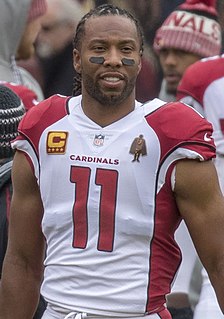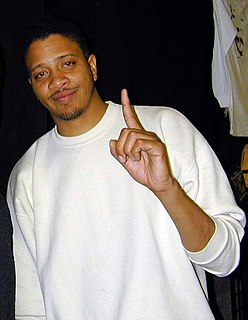A Quote by Demian Bichir
I have tried to defend what is most precious to our American society, a society that is now at war against the forces of racial intolerance.A big part of me making the decision was how important the play is for the times that we live in. This is a classic. It's a masterpiece of American playwriting. It's about discrimination and it's about we Mexicans being a target for so many years.
Related Quotes
I am aware of the changes, but in no sense am I believer that we live in a post-racial society. That's a description of our inheritance and that is theirs, which is inescapable. It is doesn't matter if you are from New England or Mississippi. You're an American. It doesn't matter if you are white, black, brown, or Asian. It is part of American society. You'd have to be blind, deaf, or dumb not to know it. The emphasis on color or the fear of it, is all part of the same dark flower. I am trying to point to that and to bring it all the way back from Senegal.
When we speak about a culture of violence in the American society, we're not just talking about the mass killers. We're also talking about that we, as a society, and many of us as individuals accept violence as part of life because we have become numb to it, being so exposed to it in various forms of media.
I joined forces with the American Cancer Society in 2010 as a spokesperson for the N.F.L.'s 'A Crucial Catch' campaign, which benefits the American Cancer Society. This was important to me because I lost my mother to breast cancer, and I have always felt a strong commitment to doing all I can to fight this disease.
On the economy, the U.S. cumulatively is our most important investor, most important trading partner, most important sort of tourists, and we have now a tie that will... a link that will be here for many, many years to come, and that is the big Philippine-American community in the United States - three million of them.
I wasn't thinking about history. I was thinking about how we were going to end segregation at lunch counters in Atlanta, Georgia.We would have never thought about making history, we just thought: Here is our chance to get out our sense of rejection at this kind of racial discrimination. I don't know that there was a time that anybody growing up in the South wasn't enraged about being segregated and being discriminated against.
American society was economically ill-run in the 1980s. Our society has been on a consumption binge. If the American people had a town meeting and said, 'What do we care about posterity? Posterity hasn't done anything for us; we're going to whoop it up now,' that is a rational judgment. But nobody ever did that.
I think Islam, for me, helped me see how similar we all are. If my views are not traditional it's because of being raised in American society. Things that are taboo in an Islamic society are magnified in this society: drinking, extramarital affairs, all kinds of stuff like that. I have to apply the human aspect of all our culture dictates . . .
Lincoln is such an iconic figure in American history. He seems to reflect so many elements of American culture that we consider essential, whether it's the self-made man, the frontier hero, the politician who tries to act in a moral way as well as in a political way, Honest Abe. His career raises these questions that are still with us, the power of the federal government vis-à-vis the states, the question of race in American life, can we be a society of equals? There are so many issues central to Lincoln's career that are still part of our society one hundred and fifty years later.
Here's the positive scenario: that something has been going wrong in American society. You see it in wage growth, opioid abuse, many other social indicators, as you know. Sometimes it's better to get the bad reaction to that over with quickly while your civil society still is strong and you can react and respond and protest, and you know, four or eight years from now, make another decision, and maybe it's better to have that happen in 2017 than 20 years later when some of our problems are worse and our national mood is worse.
American patriotism is now jingoism. American Greatness is made fun of. The concept of "Make America Great Again" or American exceptionalism is lampooned. It is impugned. It is attacked. The effort to globalize our society and make us feel, as many of us as possible, that there's nothing special about being an American, that we ought to think of ourselves as citizens of the world, and in that context America is a problem because we have too much, we've done too much, we owe too much, blah, blah, blah, blah, blah.




































